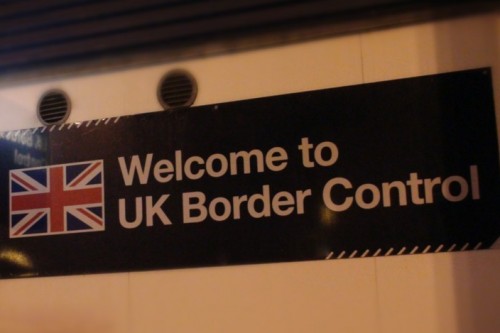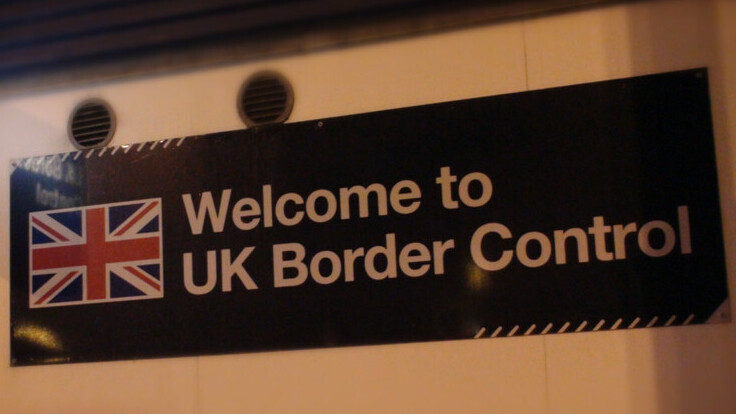
posted 15th November 2021

Britain is no longer a member of the European Union. However, it was from 1973 till 2020, and this had a major impact on its immigration policy.
Following the Maastricht Treaty of 1992, free movement of people within the European Union (EU) was established. That meant that anyone from any country within the EU could travel to any other country, not only for tourism but also to work, at any time, without any need for a visa giving them permission to enter. In 2004, the EU significantly increased in size, admitting ten more countries, most of them from Eastern Europe; this was followed in 2007 by the addition of Bulgaria and Romania. One consequence of this enlargement was that very large numbers of EU citizens, particularly from Eastern Europe, came to work in the UK. They were drawn to the UK by the prospect of more work opportunities and higher wages than they could expect to find back home.
Resentment at high levels of immigration was a very significant factor in the vote to leave the EU in the referendum of 2016. When the UK finally left the EU on January 30th, 2020, the rules around immigration and the right of people from EU countries to live and work in the UK changed. As a result, many of them left the UK. A lot of them drove lorries, delivering petrol to petrol stations and food to supermarkets, or picked fruit, or slaughtered animals in abbatoirs. Businesses have struggled to replace them with British workers, causing shortages of petrol, strawberries and bacon sandwiches. Good news for pigs at least. But is restricting immigration good news for anyone else?
The argument boils down to two points of focus: economic and cultural.
Economic
The free movement of people in the EU meant that UK businesses had a vastly wider pool of labour to choose from. Workers from Eastern Europe were eager to come to the UK. They were willing to work hard for comparatively low wages, because prospects in the UK were so much better than in their own countries. This meant that businesses could provide goods and services at much lower prices. These immigrants paid tax on their wages, which helped to support the services we all depend on, such as schools and hospitals. Because they were more likely to be young and healthy, even single and childless, they made few demands on education and health services, and so they actually put more into British society than they took out.
But … it didn’t feel like that if you were a British worker who saw the job they used to do taken by an Eastern European worker, prepared to do it for less money. It looked like those workers were undercutting your wages and were taking work from you. Statistics about contributions to tax weren’t much comfort when you couldn’t get a job, or when the job you could get was badly paid. Those statistics were also not a lot of use if you saw places at your children’s school or appointments at your GP taken by people who weren’t here a few years ago, even if their taxes were paying for those services.
To put it very simply: immigration is a good thing if you need a cleaner; it’s a bad thing if you are a cleaner.
Cultural
Life is not just about money. It is also about how you feel, not least how you feel about yourself, your sense of identity. People who are in favour of liberal attitudes towards immigration are likely to think of themselves as open-minded and tolerant, willing to accept a diversity of cultures and lifestyles, excited by the multiplicity of people. They may be well travelled, and want their children to have the same opportunity to travel. They are more likely to live in large cities, places which favour autonomy and anonymity over community. (The biggest votes for Remain came in the most diverse areas of London, itself one of the most diverse cities in the world.) They may think of themselves not so much as British, but as ‘citizens of the world.’ When the UK voted to leave the EU, many of them felt they had lost something important about their country.
Those who want limits on immigration also have a strong sense of their own identity. They are more likely to value stability over diversity, security over openness, solidarity over individualism. Many of them live in towns with very low levels of racial and cultural diversity. They were described by the writer Matthew Goodhart as ‘citizens of somewhere’.
They didn’t recognise where they lived any more; it wasn’t the place they had grown up in. When they voted Leave, they may have felt that they had already lost much of their identity because of the way in which immigration had changed their communities. When the UK left the EU, they felt as if they had got something back about their country.
The point of clash
Economically, the clash comes down to this question.
Which is more important: the flexibility of businesses to hire who they want and pay them what they want, with the resultant prosperity for the economy and the more ready availability of cheaper goods and services? Or the security for British workers of having their jobs and conditions protected, even if that means higher prices and less variety of goods and services?
Culturally, the clash comes down to this question.
Which do you value more: variety and openness, even if that means having to tolerate people who are not like you? Or security and community, even if that means excluding people who are not like you? When you walk into your local pub or cafe, do you want to see people who are like you and understand you, or people who don’t know you and who will let you be whoever you want to be?
Motions that go with this topic
- This house would reinstate the right for EU citizens to work in the UK
- This house would remove all immigration controls.
- This house would only admit skilled workers to the UK.
- This house believes that immigration is good for the UK.
- This house would rather be a citizen of somewhere than a citizen of the world.





